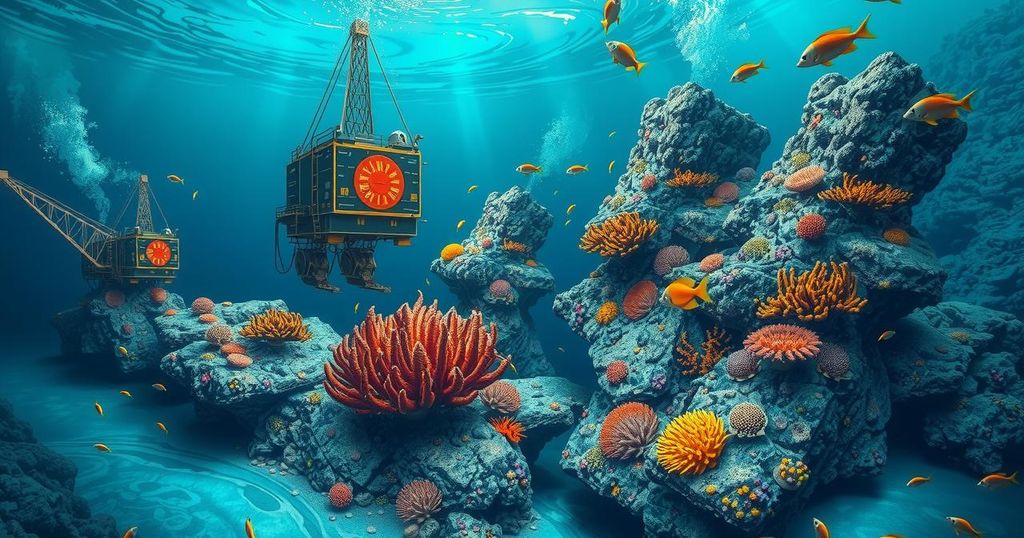Discussions on Deep-Sea Mining Resume in Jamaica Amid Urgent Calls for Caution
Negotiations on deep-sea mining in Jamaica highlight urgent calls for regulation as a metals company prepares to submit a license application. With ongoing disagreements among ISA member states, calls for a precautionary pause and environmental protections clash with industry interests. New ISA leadership raises hopes for productive discussions towards finalizing a mining code.
Discussions surrounding deep-sea mining resumed as several nations and campaign organizations convened in Jamaica, advocating for careful regulation of this contentious practice. The International Seabed Authority (ISA) is currently engaged in formulating the first mining code for deep-sea extraction, despite concerns that such activities could jeopardize marine ecosystems. As a metals company prepares to submit an extraction license, there is urgent need for regulation to prevent unmonitored operations.
French envoy Olivier Guyonvarch remarked on the lack of consensus regarding the mining code, which remains plagued by unresolved issues. In response to ongoing negotiations, a representative from Costa Rica proposed a “precautionary pause” to facilitate data collection and establish a legal framework, though support for this notion among the 169 ISA member states is a challenge. Conversely, China’s representative argued that environmental protections should not hinder resource extraction.
The United Nations Convention on the Law of the Sea entrusts the ISA with the regulation of extraction from international seabed areas, yet also mandates the safeguarding of intricate marine environments. Negotiations for a mining code governing valuable substances such as nickel, cobalt, and copper have continued for over a decade, gaining traction with the activation of a clause allowing companies to apply for licenses without an established code.
Countries in Africa expressed concerns that they might not fully benefit from the seabed’s resources, potentially undermining their own mining economies. According to the African representative, underwater extraction must enhance, rather than harm, local development needs. Meanwhile, industry stakeholders have criticized delays in finalizing the mining code and cited escalating legal and financial risks as a result.
Among the companies awaiting approval is Nauru Ocean Resources Inc. (Nori), which plans to submit an application for extraction of polymetallic nodules. Nauru has supported this application, urging ISA to develop a mechanism for reviewing proposals without the mining code in place, a request met with resistance from countries like Chile. According to Sofia Tsenikli, Campaign Director of the Deep Sea Conservation Coalition (DSCC), it is crucial that ISA Member States resist industry pressure that poses risks to ocean health and exacerbates environmental crises.
NGOs such as the DSCC harbor hopes that Leticia Carvalho, the new ISA chief, previously serving as a Brazilian oceanographer, will steer negotiations effectively after her predecessor was perceived as industry-favored. Although the council aims to finalize the mining code within the year, Carvalho called for meaningful advancement by July, suggesting adjustments to the timetable may be necessary.
In conclusion, the discussions on deep-sea mining highlight a critical intersection of environmental concerns and industrial interests. With the impending application for extraction licenses and ongoing negotiations over the mining code, there is an urgent call for balanced regulatory measures. The fate of marine ecosystems and the equitable distribution of resources remains uncertain as stakeholders navigate this complex and divisive issue.
Original Source: www.youralaskalink.com




Post Comment